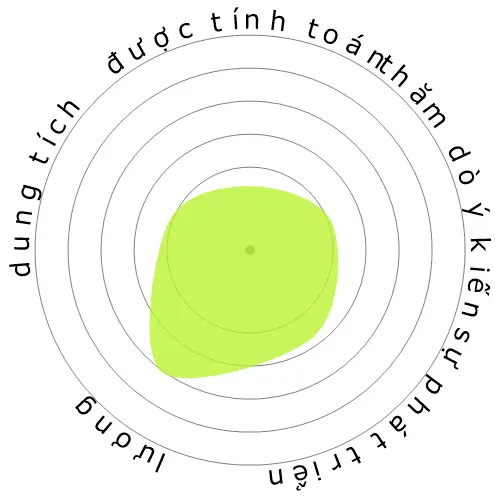Nhà văn kỹ thuật




Người khác cũng đã xem
Rủi ro tự động hóa đã được tính toán
Rủi ro Ngay lập tức (81-100%): Những nghề nghiệp ở mức độ này có khả năng cực kỳ cao sẽ bị tự động hóa trong tương lai gần. Những công việc này chủ yếu bao gồm các tác vụ lặp đi lặp lại, dễ dự đoán và ít cần đến sự phán đoán của con người.
Thêm thông tin về điểm số này, và cách tính nó có sẵn ở đây.
Cuộc thăm dò ý kiến của người dùng
Khách thăm trang web của chúng tôi đã bỏ phiếu rằng họ không chắc chắn nếu công việc này sẽ được tự động hóa. Tuy nhiên, mức độ rủi ro tự động hóa mà chúng tôi đã tạo ra cho thấy khả năng tự động hóa cao hơn nhiều: 94% khả năng tự động hóa.
Bạn nghĩ rủi ro của việc tự động hóa là gì?
Khả năng nào mà Nhà văn kỹ thuật sẽ bị thay thế bởi robot hoặc trí tuệ nhân tạo trong 20 năm tới?
Tình cảm
Biểu đồ sau đây được bao gồm ở bất cứ nơi nào có một lượng lớn phiếu bầu để tạo ra dữ liệu có ý nghĩa. Những biểu đồ trực quan này hiển thị kết quả thăm dò ý kiến của người dùng theo thời gian, cung cấp một chỉ báo quan trọng về xu hướng cảm xúc.
Cảm xúc theo thời gian (hàng năm)
Sự phát triển
Số lượng vị trí làm việc 'Technical Writers' dự kiến sẽ tăng 4,0% vào năm 2033
Tổng số việc làm, và dự kiến số vị trí tuyển dụng
Dự báo cập nhật sẽ được công bố vào 09-2025.
Lương
Tại 2023, mức lương hàng năm trung bình cho 'Technical Writers' là 80.050 $, hoặc 38 $ mỗi giờ
'Technical Writers' đã được trả mức lương cao hơn 66,6% so với mức lương trung bình toàn quốc, đứng ở mức 48.060 $
Lương theo thời gian
Dung tích
Tính đến 2023, có 47.970 người được tuyển dụng làm 'Technical Writers' tại Hoa Kỳ.
Điều này đại diện cho khoảng < 0,001% lực lượng lao động có việc làm trên toàn quốc
Nói cách khác, khoảng 1 trong 3 ngàn người được tuyển dụng làm 'Technical Writers'.
Mô tả công việc
Viết tài liệu kỹ thuật, như hướng dẫn sử dụng thiết bị, phụ lục, hoặc hướng dẫn vận hành và bảo dưỡng. Có thể hỗ trợ trong công việc thiết kế bố cục.
SOC Code: 27-3042.00


Bình luận
Leave a comment
The main challenge for an AI is not the technical writing. It is actually making sense of the source material. This will be the main job of technical writers: Explaining to the AI what it needs to write. Technical writers will increasingly be busy with post-editing AI written texts, which will be a very mind numbing task. It will also require fewer people and warrant lower pay.
If you want to know the future of technical writing, look at what has happened to technical translation. If you are a technical writer, you are headed the same way. You will operate AI tools and check the results for lousy pay because you are not actually doing the brain work. Get into nursing or open a funeral home. People will always get sick and die, that's a future-proof occupation.
Curating and organizing the information to feed to the AI, and checking their output for accuracy, may be one of the few jobs left to tech writers.
As technical writers we understand complex systems (as well as the engineer's gibberish that often comes with it) and are able to translate this into a form that is easily understood by the respective user groups, i.e. operators or maintenance personnel.
In my opinion AI nowadays can provide draft text to the technical writers. But it takes a human to process that into understandable content, because only a human can know what is necessary for others to profit from precise instructions and related warnings. Also when it comes to jurisdiction.
Who will be held accountable for injury or death caused by automated AI that simply pretends to be human-like but has otherwise no conscience? I mean, an AI can tell you that a stove is hot, but does this mean it really knows the consequences of touching it?
Some learned it the hard way, I doubt an AI can.
I don’t see this role being completely automated in 10 years.
More importantly, why would anyone pay for a professional to do it?
We are already implementing automated structured reuse on a large scale. People should not underestimate the potential of computational linguistics when combined with machine learning and a knowledge graph-rich future.
Although intelligent content (structured content with human-declared intent) cannot be automated yet, we are already auto-classifying content with additional semantic metadata (taxonomies). AI/ML will continue to assist and eventually replace a significant portion of low-level content development, which will elevate the writer's role to that of an information architect/designer.
Object-oriented content will then become a service called Content-as-a-Service (CaaS), much like an electrical distribution grid.
In TechComm and MarComm, we have been evolving towards this model for many years.
I cannot fathom how AI would somehow be able to do all the things that are required to be done in order to complete a technical writing piece.
AI has already taken over the writing niche . . . people no longer need education to write, software helps them do it. That is all AI could ever do for a writer.
Để lại phản hồi về nghề nghiệp này